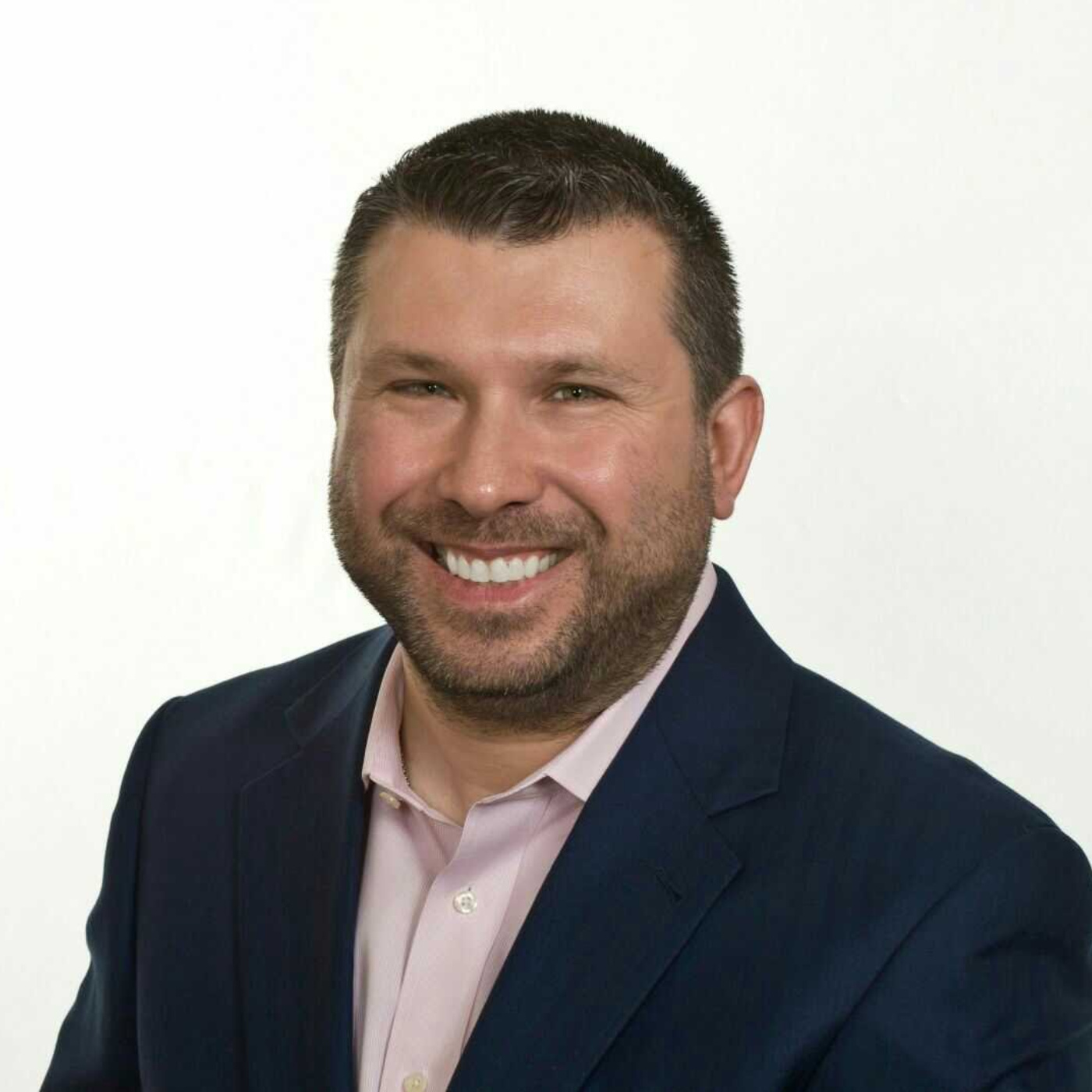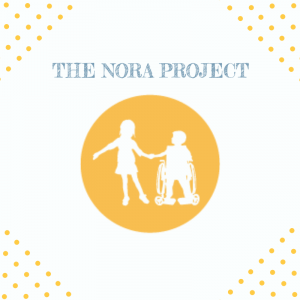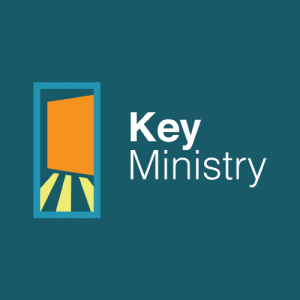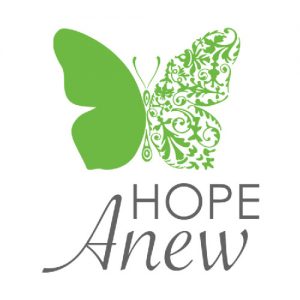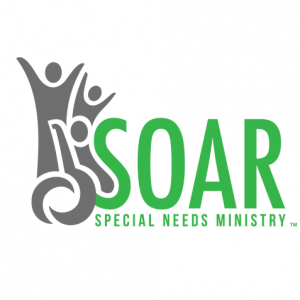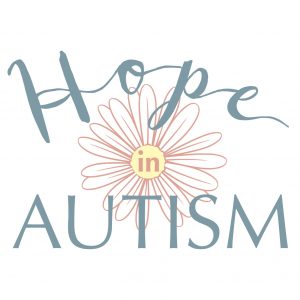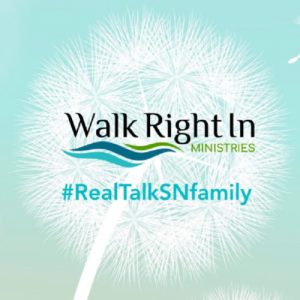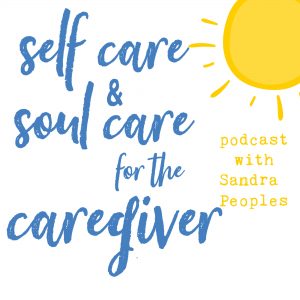Last October I presented at a special needs ministry conference in Kansas City. This conference attracted speakers and presenters from all over the country, many of them from my very own Key Ministry. I was sitting with one of my fellow writers, Sarah Broady, outside the auditorium before the first night of speakers, and we were chatting with a couple of other presenters from Michigan. We began to share our stories and backgrounds, and I told a story about presenting at my first conference, Key Ministry’s Inclusion Fusion, earlier that year. I talked about how I introduced myself to the other presenters that I was meeting for the first time, and related how, when I would be asked about my background, I humbly replied that I was “just a dad.” This was an easy way for me to make myself comfortable but also a response that acknowledged that I was not on the level of some of my colleagues who were themselves published authors, ministry leaders, medical professionals and such. It was not, as I was soon corrected, a fair statement on my part, as Sarah quickly chimed in as soon as I said it with an affirmative: “no that’s not true, you are more than that.”

An idea was born…
That comment began a conversation between the two of us that continued throughout the remainder of the conference, on the way to the airport, and even on the flight we shared heading back east. We discussed all of the instances in which we as parents were made to feel that we were essentially less than qualified to make a choice for our children’s education or health because we were not seen as a so-called “expert”. We shared our own experiences at our children’s schools, doctor’s offices and therapy clinics, many of them certainly positive and yet some in which we were demeaned, put into a proverbial corner and made to accept advice. It was through all of this emotional churning that we decided that this would be a wonderful topic for a workshop, to allow parents to share their own memories of those times when they were made to feel less than an expert at parenting. I am proud to say that after a few months of brainstorming, we will be presenting a workshop exactly on this topic at Key Ministry’s Inclusion Fusion Conference in Cleveland the first week of April. If you are reading this and the conference has missed you, or if you were unable to attend, I still wish to explore these feelings with you in the context of this blog post, and hope it will allow you an opportunity to reflect.
The concept we chose to present involves exploring challenging issues when as a parent you have been made to feel as “not the expert” when it comes to your own child, and while these could occur in a variety of settings, the area I’d like to focus on here is the school setting. Having spent over 15 years in education as mostly a classroom teacher but also in other roles including director of a preschool and parent educator, I have what I feel is a unique perspective on experiences like these. Being a special needs parent, I also have a wide range of perspectives, since my son has attended both public and private schools, mostly with a great deal of support but in some cases not. Since my wife has also been a middle school teacher for the same amount of time as me, and we have many friends who are also special needs parents in our area, I feel there is a lot that we can share. My overall philosophy on education is generally this: schools and/or districts that have more resources financially, are usually better schools in general, and therefore serve our special needs kids better. Is this always the case? Absolutely not, as I will share some challenging experiences that either we or friends of ours have had in affluent school communities, but I believe that those who have more to work with can support children better, since it means more support staff or better trained staff in general, more tools or resources (especially technology), and usually better or more equipped facilities, which are both functional and serve as a more pleasant environment. We are certainly blessed to have had a wonderful experience the last several years with our son’s local public school district, and the effects of having great resources are certainly evident here. But it was not an easy road that got us here, as we had our share of potholes which at times were quite heartbreaking, and definitely made us feel like we were not the experts.
My Son’s Story
Our son began his school career like most children do in one form or another, at a private day care center where he was placed in a classroom of typical peers for his age group, which for him started as a toddler. The center was actually a franchise of a national company, which had a fairly good reputation as an organization and we also felt good about the location itself, however since this was our first child and we had no training in early childhood, we took what we saw at face value and really didn’t question anything, which was fine since he didn’t have a bad experience there, but we also didn’t realize what his true needs were since we didn’t have a firm diagnosis yet. So he navigated the classroom and expectations well for the most part, and since he was at a young enough age there was always enough support for him, but as we soon learned he couldn’t truly be independent in that setting. When we finally had a diagnosis of autism, we looked at some options for schools, and we did have an IEP meeting with our local school district at the time, but weren’t crazy about the program that was offered there. I have a background in Montessori education, which is a wonderful method for learning in my opinion, especially for preschool aged children, and my wife and I discussed the possibility of it for him. Fortunately, I was connected with the director of a very well respected Montessori school in a wealthy suburb near us, and after taking a tour with my wife and having a heart to heart with the director, we felt it was finally the perfect spot. It was, in fact, a great place for him, while he was in their toddler program, as the classroom exactly suited his challenged motor skills and cognitive/speech impediments. The next classroom became the real place of conflict unfortunately, as he moved into one of the regular preschool classrooms (3-6 year olds), as the teacher in that setting was not trained in working with special needs and had no real interest in supporting or interacting with him, which sounds incredible, but in a Montessori environment with a teacher who is very traditional to the philosophy, a child like mine tends to just upset the apple cart a little too much, and so we found he was not only struggling, he was being ignored.
The source of our frustration with this situation came not just from the fact that we were aware of what was going on since we had provided our child with a one on one aide through his autism clinic, and she would frequently communicate to us what was really going on for him. To be fair, the aide didn’t understand Montessori philosophy, but that was not her fault, and we further learned that he wasn’t getting much if any attention or instruction from the teacher at all. We did express our concerns to the director, with the feeling of course that she would hear our concerns, not just as the parents of one of her students, but especially since I considered her a personal contact knowing my background and the schools I had worked for. She did respond that she would investigate and make sure that he was treated well, but our concern wasn’t just that he was being shunned, it was more so that we hoped he could thrive in a place like this. The final straw was when we learned something that absolutely destroyed us: the teacher was actually telling kids to not interact with him on the playground, presumably because his behaviors just didn’t fit what was considered “typical” behavior. The irony in all of this: Montessori was originally created for the physically and mentally handicapped in the slums of Rome at the turn of the century, and now a hundred years later my son is still somehow a victim.
While this experience did not necessarily equate with us being told we were not capable to make a decision on our son’s education, however the effects it left on us still carried the energy of being put in our place. I thought I was an expert in making this decision for my son, having a good deal of background on the school and the philosophy, my wife also having a great mind for education, and even with how much we loved the setting, we still weren’t good enough. We weren’t good enough in that place and time to make the right call for our child, and while we never confronted her, the teacher still gave us that message through our son’s time there. We made the decision at the end of the school year to take him out of there, and then transitioned him to a preschool program run by the special education district where we eventually moved to. He has honestly had a wonderful school career since then, coming into the life skills program at his current school in Kindergarten through his present fifth grade year, but we have never forgotten that time when we felt undermined as parents, who couldn’t advocate for their child. This is essentially a lie from the pit of hell, and we have to admit to that first, and then remember that we are more than just two parents who don’t know what’s better for our son’s classroom, but rather two highly qualified and educated people who are his first and best teachers.
You ARE More!
My hope in sharing this experience with you is that you would first remember what an incredible parent you are, and that regardless of how challenging the situation or people involved, you enter into those events and conversations with that knowing. I also hope that you would remember that you may never have all of the information or experience you think you may need in a given situation, but that doesn’t mean you are not an expert. You are in fact quite the expert on your child, and so when you face the challenges that a degree or certification, or other structures present, remember that you are more than just a parent, you are everything. Sarah and I are interested in keeping this conversation going with you long term, as we are hoping to continue both presenting on this topic and possibly turning this into a larger study or even a book someday, but your stories are what would shape that. I encourage you to reach out to either of us through Key Ministry or our personal blog pages and websites, and tell us your stories of when you felt less than essential in your child’s life somehow. We believe that special needs parents are not just parents, we are capable of making the best choices for our child’s education, their medical needs and the best supports in our churches, we are simply more than. You are more.
